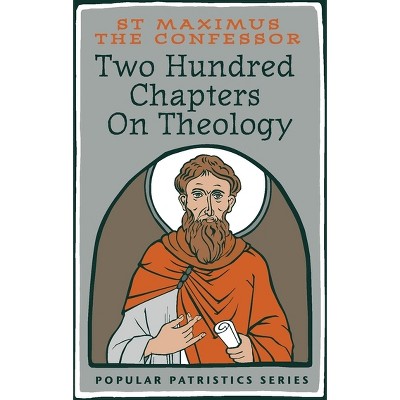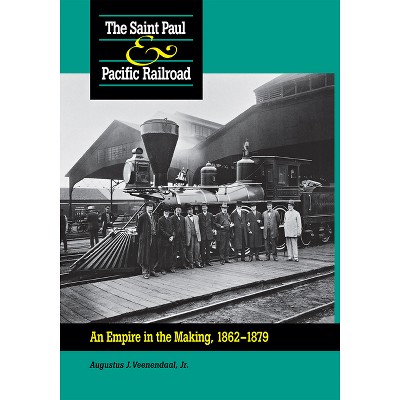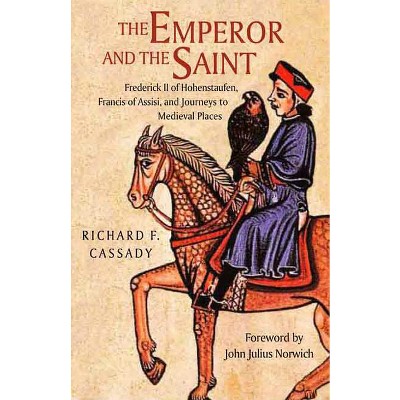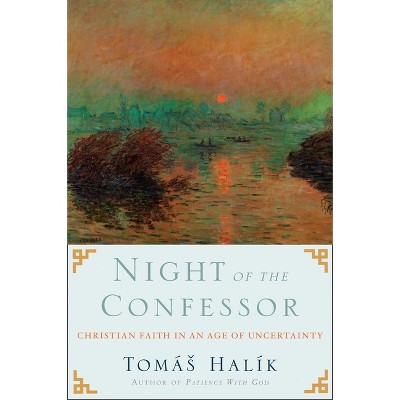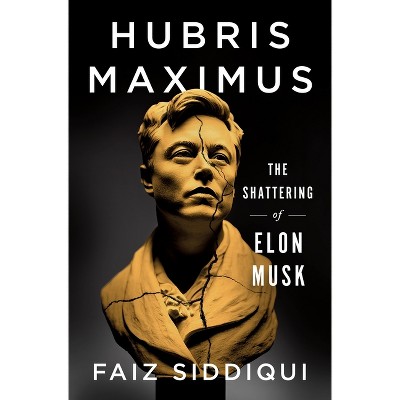St. Maximus the Confessor's "Questions and Doubts" - by Saint Maximus the Confessor (Hardcover)

About this item
Highlights
- Despina D. Prassas's translation of the Quaestiones et Dubia presents for the first time in English one of the Confessor's most significant contributions to early Christian biblical interpretation.
- About the Author: Despina D. Prassas is an Associate Professor of Theology at Providence College, in Providence, RI.
- 248 Pages
- Religion + Beliefs, Christian Theology
Description
About the Book
Maximus the Confessor (580662) was a monk whose writings focused on ascetical interpretations of biblical and patristic works. For his refusal to accept the Monothelite position supported by Emperor Constans II, he was tried as a heretic, his right hand was cut off, and his tongue was cut out. A major theologian of the Byzantine Church...Book Synopsis
Despina D. Prassas's translation of the Quaestiones et Dubia presents for the first time in English one of the Confessor's most significant contributions to early Christian biblical interpretation. Maximus the Confessor (580-662) was a monk whose writings focused on ascetical interpretations of biblical and patristic works. For his refusal to accept the Monothelite position supported by Emperor Constans II, he was tried as a heretic, his right hand was cut off, and his tongue was cut out.
In his work, Maximus the Confessor brings together the patristic exegetical aporiai tradition and the spiritual-pedagogical tradition of monastic questions and responses. The overarching theme is the importance of the ascetical life. For Maximus, askesis is a lifelong endeavor that consists of the struggle and discipline to maintain control over the passions. One engages in the ascetical life by taking part in both theoria (contemplation) and praxis (action). To convey this teaching, Maximus uses a number of pedagogical tools including allegory, etymology, number symbolism, and military terminology.
Prassas provides a rich historical and contextual background in her introduction to help ground and familiarize the reader with this work.
Review Quotes
It is the first English translation of the text and is, therefore, a welcome addition to the literature on Maximus. Prassas has rendered us a great service by striving so vigorously with Maximus's difficult Greek. The collection of Quaestiones et Dubia itself is an excellent text for beginning a study of Maximus. Prassas' work is, therefore, definitely to be recommended.
-- "Journal of Early Christian Studies"About the Author
Despina D. Prassas is an Associate Professor of Theology at Providence College, in Providence, RI. Her research areas include Greek patristics and ecumenical theology.
Shipping details
Return details
Trending Non-Fiction






